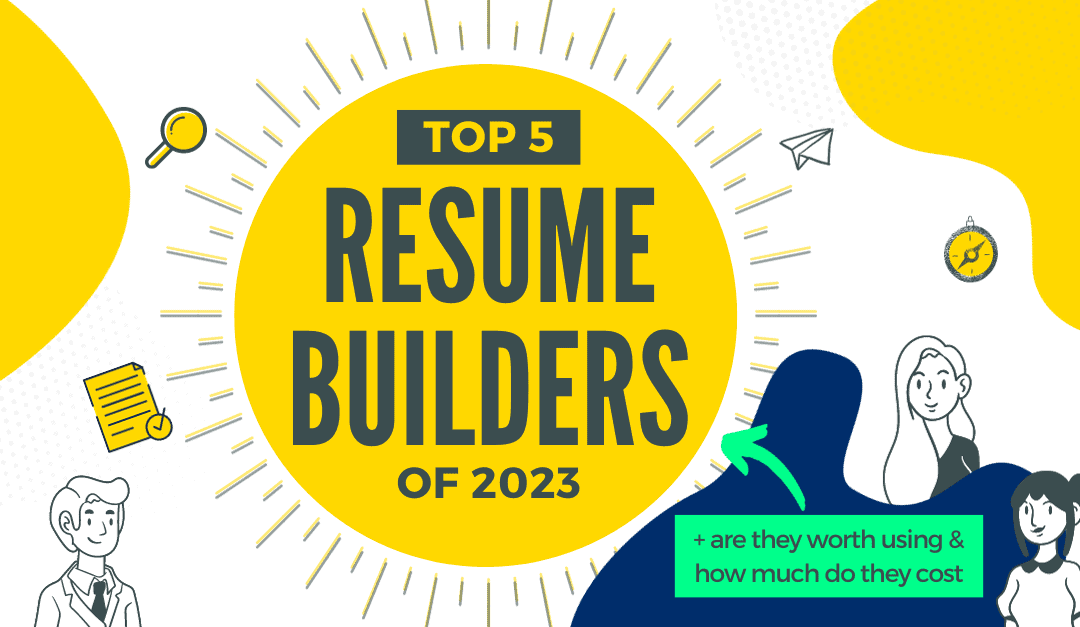
When is the Right Time to Change Jobs? 4 Signs You Should Change Jobs (and 3 Signs You Shouldn’t)
“How do you think today went?” Charlie replied. There was an emphasis on the word think, and Charlie’s mother could detect the snark in his voice. Charlie quickly realized his mother’s annoyance with his sass, so he continued, “I’m sorry mom. I hate to always have the same answer for you. I appreciate you asking every day how work went, but at this point, I’m not really sure what to do.”
“Sweetheart.” Charlie’s mother said endearingly. “I think it might be time to change jobs.”
If you’ve ever had a similar conversation about switching jobs with your mom, brother, sister, cousin, mentor, or career counselor, then you’re definitely not alone. In fact, these days people change jobs on average 5-7 times in their adult careers.
Like Charlie, you may be thinking:
👉 How do I know when it’s time to change jobs?
👉 What signs should I look for that I need to change jobs?
👉 How do I even go about changing jobs?
Many people are reluctant to change jobs out of fear of being labeled a quitter. We tend to value the “never quit” mentality because quitting is synonymous with giving up. By quitting, we convince ourselves we are failures.
But this common misconception is just that, a misconception. We shouldn’t let the fear of being labelled a quitter stop us from making a positive change in our careers.
Luckily, changing jobs isn’t as scary or as taboo as it once was.
In this post, I’ll uncover four signs you might want to change jobs as well as 3 signs you might want to reconsider. I’ll share when the best time to change jobs is and go over how to minimize the risk of doing so. Most importantly, at the end you’ll be able to answer the all-important question, “Should I change jobs?” and you’ll have a blueprint for how to make it happen.
4 Signs You Need to Change Jobs
1. You are in a toxic work environment
Toxic environments can lead to stress, anxiety, or burnout, and can even lead to physical ailments in people who receive the worst of the effects. Workplace culture specialist Melody Wilding shares a few key signs you may be in a toxic work environment.
- Everyone has a bad attitude
- There’s always office drama
- You have a tyrannical boss
- You feel in your gut something is off
Answering the almighty should I change jobs question becomes much easier if your workplace displays these signs. Truthfully, even if one of these signs is present, it’s probably time to go. There are too many places out there that do not have a toxic culture for you to stay somewhere that does.
2. Your Learning Has Plateaued
Although most people think they should change jobs if they can’t get promoted or can’t get a raise, there is value in staying at a job if you’re still learning new skills.
According to Josh Bersin and Marc Zao-Sanders in The Harvard Business Review, learning should be a consistent and daily part of our jobs.
If your job doesn’t give you the opportunity to learn, or if you truly feel like there’s nothing left to learn, then it’s a good sign you need to change your job.
3. Your Salary and Title Has Plateaued
Money shouldn’t be the only indicator that dictates when it’s time to change your job, but salary raises can be indicators of career advancement. Getting a raise is the company’s way of showing how much they value you.
Additionally, promotions are key indicators of job growth. Without any opportunity for advancement, it starts a cycle of learning stagnation, salary stagnation, and title stagnation.
If you think you’re just going through the motions and your day-to-day becomes mundane or uninteresting, it may be a sign it’s time to change jobs.
4. You’ve Been Doing the Same Job for 5+ Years
This may be a little controversial, but there is sometimes value in leaving a job even if you like it. If you’ve been doing the same thing day in and day out for more than five years, it may be a sign you’ve gotten complacent and you’re sitting in your comfort zone.
The truth is that growth only takes place once somebody pushes the limits of their comfort zone.
It’s essential to explore other environments, challenge yourself, go for a bit of adventure in your life, and try something entirely new. Having a diverse set of experiences is not only good for your mental health, but it’s also good for your resume (more on that later).

3 Reasons You May Not Want to Change Jobs
1. You’ve Got Bills to Pay and Mouths to Feed
There ain’t no rest for the wicked. Money don’t grow on trees. And if you don’t understand that obscure Cage the Elephant song reference, then the underlying message may be this:
Sometimes you may see the signs you need to change jobs, but your current job provides you and your family with a steady paycheck and a sense of stability. This is definitely important.
👉 But, be cautious here as this can easily be used as an excuse.
Ask yourself, when your kids are older, will they be proud that you were miserable for them? Or would they have wanted you to pursue your dreams? In many cases, by pursuing your dreams, you will inspire them to do the same.
2. You Can Move Laterally
Say you’ve been having thoughts about changing jobs, and you’ve been very open with your current manager about it. You have a strong relationship and this person supports you. Your manager may ask if you want to make a lateral shift in the company to satisfy your thirst for continued learning, title change, and new experiences.
In most cases, this can be valuable. You may learn you have new interests. You may feel reinvigorated by the change.
But be careful!
This change could be a temporary solution to a long-term problem. Often, signs you need to change jobs persist because of the company as a whole, not just because of your department.
3. You’re Not Sure What You Want to Do Next
You need a solid plan. Quitting an unfulfilling job can be liberating, but that feeling of liberation will quickly disappear if you have no options for the near future.
Don’t just quit to go sit on the couch. Stay at your job and explore other jobs through projects, freelance work, or volunteering. Figure out your next steps or at least a general direction.
If you want to try a simple exercise for how to figure out what to do next, this video by career coach Angie M. Callen is a great place to start:
2 Suggestions for How to Change Jobs
1. Be Direct and Professional
Changing jobs inevitably comes with the scary moment of quitting your current job.
Always act with dignity and class in the workplace.
Do not burn bridges, do not go behind anyone’s back. Even if you're upset about how the company or your manager treated you, still be a professional.
Approach your supervisor and tell them exactly why you want to leave, and even explain what you’re looking for next. Who knows, they may even give you everything you want and ask you to stay! Or they could connect you to people in the industry you’re looking for.
2. Create a BATNA
A BATNA is a negotiating technique that stands for:
Best Alternative To a Negotiated Agreement
In other words, it’s the most advantageous option you have if all else fails. Changing jobs without having anything in place as a backup can slow down your career growth.
This BATNA can be a 6-month sabbatical, an opportunity in a different company you already have lined up, or an entrepreneurial venture. It just has to be better than the situation you’re currently facing.
The BATNA serves as your temporary resolution before finding the next job you’re looking for. It keeps you learning and growing.
Here are a few options you can consider for your BATNA:
1. Part-time job in a field you’re interested in
2. Consulting work
3. Teaching at a school or university
4. Volunteering for a non-profit
5. Starting your own small business or venture
6. Building an online store (such as on Shopify, Etsy, etc)
7. Going back to school or completing an online certification
8. Writing a book or becoming an online instructor
When choosing a BATNA, the most important thing is to be learning a new skill. This is crucial so that if you decide to apply to jobs you’ll have good stories for why you had an employment gap.
In many cases employers will actually give you more credit for taking on something new and this can help you get hired over candidates who just stayed at their jobs.
Often you can find training for your career pivot online for free. For example, if you're interested in copy writing, you can learn how to become a copywriter (without experience) here.
3. Prepare your Job Search Skills Ahead of Time
A lot of people make the mistake of waiting to quit their job before they begin refreshing their job searching skills.
If you've ever applied to jobs before, you know how hard the process can be and how long it can take. That's because doing a job well has zero correlation with applying for jobs well.
If it's been awhile since you last applied to jobs, it's a good idea to refresh your job hunting skills with the most recent job search best practices.
Here are a few resources:
1. Join our FREE resume and interview courses
2. Read the GHYC blog
3. Watch some of our free Career Coach Videos
If you're ready to make a job switch and you're serious about it, then I recommend you skip some of the above and become a GHYC member. You'll get access to all of the above plus you'll get access to The Accelerated Resume Course, The Interviewing Course, and all of our Job Search Tools for FREE.
But, regardless of where you are in your job search journey, it's always good to see what your options are.
The possibilities you discover in the process may surprise you.
Read more resume, LinkedIn, and interview best practices on The GHYC Blog.
Get 1-on-1 Help
Need to land your job ASAP? Fast forward your job search with some 1-on-1 help! 👇
More from the blog:

Best Resume Builders of 2023 (Pros & Cons + Prices)
Modern resume builders use AI, ATS-friendly templates, and active recommendations to help you build your perfect resume faster than ever before. In this post we’ve rounded up the 5 best resume builders of 2023.
How to Beat the ATS in 25 Minutes | The Ultimate Guide
In this guide I’ll show you how to beat the ats (applicant tracking system), plus I’ll give you 2 ATS-friendly resume templates and a free tool to test if your resume is ATS-friendly.
Like this? Try our free courses!
Tired of sending your job applications into a black hole and never hearing back? Get hired faster with our guided courses all for FREE!